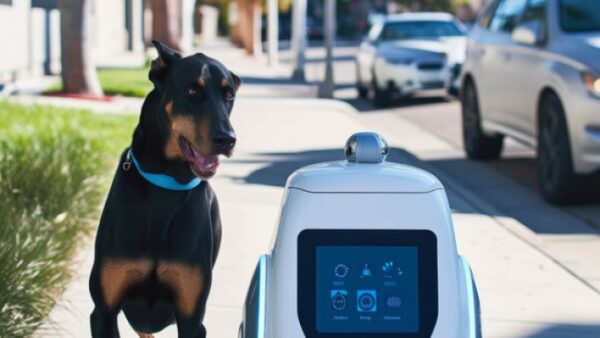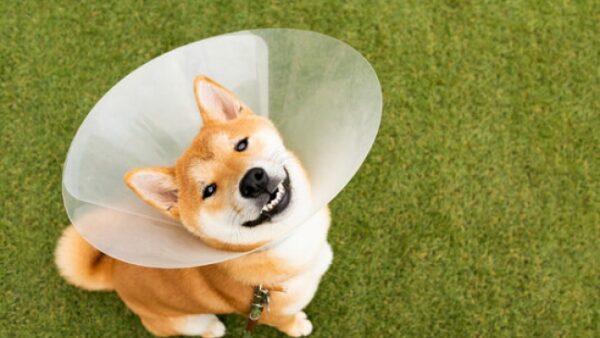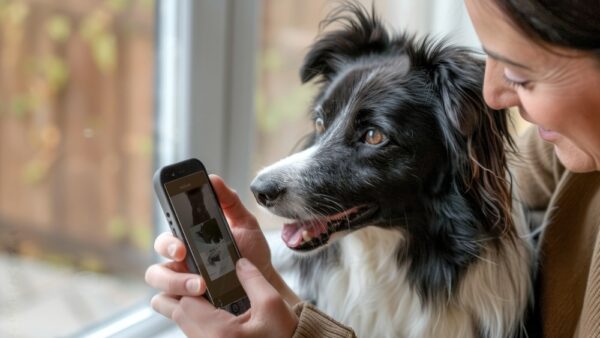Can unvaccinated puppies be around vaccinated dogs? This is one of the most popular questions among dog owners, and after making research and asking questions from qualified vets, we have come to the conclusion that it is very dangerous to leave unvaccinated dogs interacting with vaccinated ones.
In this blog post, we have revealed the risk of leaving an unvaccinated puppy to interact with vaccinated dogs. Aside from this, you will also get to know the most crucial vaccines to get for your dog during puppyhood and the best period to get them.
Without further ado, let’s begin!
What’s a Vaccine?
A vaccine is a biological preparation that provides active acquired immunity to a specific infectious disease. It is a preparation that typically consists of a weakened or killed form of the microorganism that causes the disease, and it works by stimulating the immune system to recognize and fight the specific disease, creating an immunological memory.
This helps the immune system respond more effectively if the person or animal is later exposed to the actual infectious agent, preventing or reducing the severity of the disease.
The first round of vaccines is usually administered to puppies at 8 weeks old. While in some special cases, puppies as young as 6 weeks old can be vaccinated.
What Is the Importance of Vaccines?
One of the most important things about vaccines is that they help prevent dangerous diseases. Vaccines play a crucial role in preventing and controlling the spread of infectious diseases. They help protect dogs from serious illnesses, reduce the risk of outbreaks, and contribute to overall public health by establishing immunity within populations.
Can An Unvaccinated Puppy be Around Vaccinated Dogs?

This is the thing! Because a dog has been fully vaccinated doesn’t mean it can’t still contract disease. The vaccine will only help reduce the risk of contracting the disease.
With that being said, once your dog is fully vaccinated, ensure you keep it away from interacting with unvaccinated dogs. By doing this, your dog will be less exposed to contracting communicable disease such as Canine Parvovirus, Canine distemper, Canine Influenza and many more.
And again, if your puppy is yet to be vaccinated, you should also prevent it from interacting freely with other dogs because the health status of those dogs is unknown to you and Illnesses can spread quickly among dogs, and an unvaccinated puppy may be more vulnerable.
At What Age Is a Dog Safe from Parvo?
According to Baker Institute for Animal Health, Canine Parvovirus is one of the most common dog’s diseases in the world. This disease is very deadly and can kill dogs within 48 – 72 hours without treatment. This is why this section in this article is crucial for you.
Note that puppies are most vulnerable to parvo between 6 weeks and 6 months of age. However, older dogs are sometimes affected.
Vaccination plays a crucial role in protecting dogs from parvo, and they typically receive their first series of shots starting at around 6-8 weeks old. Full immunity is usually reached a few weeks after the final vaccination in the series, which is often around 16-20 weeks of age.
Can An Unvaccinated Puppy Meet a Vaccinated Dog?
While vaccines significantly, always reduce the risk of a dog contracting and suffering from parvovirus, a vaccinated dog can still carry the virus. Although, the severity of the illness is typically much lower in vaccinated dogs.
Regular vaccinations are crucial for preventing and minimizing the impact of parvovirus in canine populations. If you suspect your dog may have been exposed to parvovirus or is showing symptoms like severe and often bloody diarrhea, lethargy, vomiting, hypothermia etc. Just consult a veterinarian.
How to Prevent your Unvaccinated Puppy from Contracting Disease?
If you have an unvaccinated puppy, make sure you avoid exposing them to areas with potential disease transmission, such as dog parks or places with unknown vaccination statuses.
It’s also important to refrain from contact with sick dogs and delay interactions with unfamiliar dogs until your puppy completes its vaccination schedule to minimize health risks.
At What Age Can Puppies No Longer Get Parvo
Puppies are most susceptible to parvo between 6 weeks and 6 months of age. However, vaccination is the most effective way to prevent parvo, and a series of vaccinations should be administered starting around 6-8 weeks of age, with boosters until at least 16 weeks old.
And it is also important to note that dogs can’t be completely free from parvo as this deadly disease has been recorded in adult dogs also, but with regular vaccinations and proper hygiene, you will significantly reduce the risk of parvo infection.
What Are the Early Signs of Parvo in Dogs?
Early signs of parvovirus (parvo) infection in dogs include lethargy, loss of appetite, vomiting, and diarrhea. The diarrhea is often severe, with a distinct foul odor. It’s crucial to seek veterinary attention promptly if you suspect your dog may have parvo, as it can be a serious and potentially fatal illness.
How Can I Prevent My Puppy from Getting Parvo Naturally?
There are ways you can prevent your dog from contracting parvovirus. Below are the ways.
Vaccination
Ensure your puppy receives a full series of vaccinations, including the parvovirus vaccine. Follow the vaccination schedule recommended by your veterinarian, as it typically involves multiple shots to build immunity.
Limit Exposure
Avoid exposing your puppy to areas where unknown or unvaccinated dogs may have been. Parvovirus can survive in the environment for an extended period, so be cautious about public places until your puppy is fully vaccinated.
Clean Environment.
Keep your puppy’s living environment clean and disinfected. Parvovirus is highly resistant, so regular cleaning with a pet-safe disinfectant can help reduce the risk of contamination.
Proper Nutrition
Ensure your puppy receives a balanced and nutritious diet. A healthy immune system can better resist infections, including parvovirus. Consult with your vet to determine the best diet for your puppy’s specific needs.
Quarantine New Pets.
If you have other pets or plan to bring a new one into your home, quarantine them initially to ensure they are healthy and not carriers of the virus. This helps prevent the introduction of parvovirus to your puppy.
Regular Vet Checkups:
Schedule regular checkups with your veterinarian to monitor your puppy’s health. Early detection of any signs or symptoms allows for prompt action, improving the chances of successful treatment if parvovirus is suspected.
Remember, while these steps can reduce the risk, no approach guarantees complete prevention.
Can A Vaccinated Dog Still Carry Parvo?

While vaccines significantly reduce the risk of a dog contracting and showing symptoms of parvovirus (parvo), I will tell you that it is still possible for a vaccinated dog to carry the virus and potentially spread it to other dogs.
Vaccination doesn’t always guarantee complete immunity, and some dogs may still carry the virus in their feces without showing clinical signs.
Regular veterinary check-ups and proper hygiene practices are crucial for preventing the spread of parvo, even among vaccinated dogs.
Can Dogs Die from Parvovirus?
Yes, parvovirus can be a serious and potentially deadly disease for dogs, especially puppies. It can also cause severe gastrointestinal symptoms, leading to dehydration and other complications.
Early detection and prompt veterinary treatment are crucial for a better chance of survival. So, if you suspect your dog has parvovirus, seek veterinary care immediately.
What Are the Top Recommended Vaccines for Dogs?
There are several types of vaccines for dogs, including:
Core Vaccines:
- Canine Distemper
- Canine Parvovirus
- Canine Adenovirus (hepatitis)
- Rabies
Non-core Vaccines:
- Leptospirosis
- Bordetella bronchiseptica (kennel cough)
- Canine Influenza
- Lyme disease
The specific vaccines recommended may vary based on factors such as the dog’s age, lifestyle, and geographic location. Always consult with a veterinarian to create a vaccination plan tailored to your dog’s needs.
Side Effects and Risks Associated with Dog Vaccinations
As the saying goes, everything that has advantages also has disadvantages too. So, while dog vaccinations are generally safe and crucial for preventing various diseases, they can have side effects.
Common side effects include mild lethargy, soreness at the injection site, or a slight fever. In rare cases, more severe reactions like allergic responses or localized swelling may occur. So, I will advise you to carefully monitor your dogs after vaccinations and consult your vet if you notice unusual symptoms.
Overall, the benefits of vaccinations in preventing serious diseases usually outweigh the potential risks.
{FAQs} PEOPLE ALSO ASK
What Is Healthy Food for Dogs to Avoid Getting Affected by Disease?
For a healthy diet, I will advise you to consider feeding your dog high-quality commercial dog food that meets their specific nutritional needs.
Include lean proteins, vegetables like carrots and green beans, and whole grains. Avoid feeding them chocolate, onions, grapes, and foods high in fat, as these can be harmful. Always consult your vet for personalized advice based on your dog’s breed, size, and health conditions.
What Are Dog Vaccines and Why Are They Important?
Dog vaccines are preventive measures designed to protect dogs from various infectious diseases. They stimulate the immune system to recognize and fight specific pathogens, such as viruses or bacteria. Vaccinations are crucial because they help prevent serious illnesses that can be costly to treat and, in some cases, fatal to dogs.
Additionally, vaccines contribute to public health by reducing the spread of diseases that can affect both animals and humans. Regular vaccinations are recommended to maintain a dog’s health and ensure a longer, happier life
Conclusion
Reading this article to this point, you should have gotten the answers to this question “Can unvaccinated puppies be around vaccinated dogs?”
It is important to vaccinate dogs during to puppyhood, this helps prevent them from getting infected by certain diseases and it also gives them the privilege to move freely since they are less prone to contracting infectious disease.
Aside from vaccinating dogs, there are several ways to prevent your dog from getting affected by disease, some of these are by feeding them healthy food, giving them good vaccination and taking good care of them.







Leave a comment